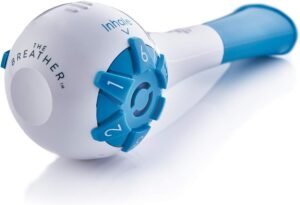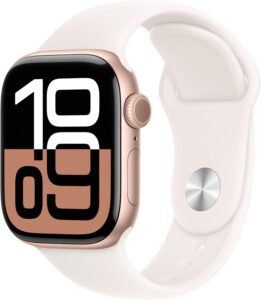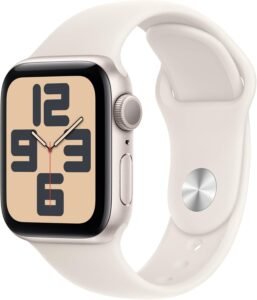Ask Your Health Questions: 7 Powerful Expert Tips
Ask Your Health Questions: 7 Expert Tips You Need to Know
Welcome to Ask Your Health Questions: 7 Expert Tips You Need to Know — your trusted space to find clear, accurate answers to all your health-related concerns. Whether you’re curious about nutrition, fitness, mental wellness, or everyday health issues, this guide is here to empower you to ask the right questions and get reliable advice.
We understand that health questions can sometimes feel overwhelming or confusing. That’s why it’s important to have access to trustworthy information that cuts through the noise. When you ask your health questions, you deserve answers backed by experts who care about your well-being. This is exactly what our platform offers — a safe and supportive environment where your health inquiries are valued and addressed with care.
In today’s world, misinformation spreads easily, making it even more crucial to rely on dependable sources. By following our 7 expert tips, you will learn how to ask your health questions effectively, ensuring you receive clear, practical, and accurate responses. These tips will help you communicate your concerns better and make informed decisions about your health.
Whether you’re just starting your wellness journey or looking to deepen your understanding, this guide welcomes all kinds of health questions. No matter your background or health goals, you can feel confident knowing this is a safe space designed specifically for you.
So don’t hesitate—ask your health questions today and take the first step towards better health and peace of mind. Your journey to reliable, expert-backed answers begins here!
See Price on Amazon
Common Health Questions
When it comes to health, people often have similar questions across key areas like nutrition, fitness, mental health, and sleep. Here are some frequently asked questions to help you get started:
What are the best foods for boosting energy?
Whole grains (like oats, brown rice), nuts (almonds, walnuts), fruits (bananas, berries), and vegetables (spinach, sweet potatoes) provide steady, lasting energy and essential nutrients that keep you active throughout the day. These foods release glucose slowly, preventing energy crashes and supporting brain and muscle function.
Product advice:
Consider adding a high-quality mixed nuts pack or organic oatmeal to your pantry for easy, energy-boosting snacks. For fruits and veggies, frozen mixed berries and pre-washed spinach bags are convenient options.How much water should I drink daily?
Aim to drink about 8 glasses (2 liters) of water daily, but this varies based on your activity level, climate, and personal health. Staying hydrated helps maintain energy, focus, and overall well-being.
Product advice:
Use a reusable water bottle with measurement marks to track your daily intake easily. Brands like Hydro Flask or CamelBak offer durable, BPA-free bottles ideal for home, work, or workouts.

Experience superior grip and comfort with the Liforme Original Yoga Mat. Includes a free yoga bag, eco-friendly materials, and a patented alignment system.
How often should I exercise each week?
Most health experts recommend at least 150 minutes of moderate-intensity activity per week — that’s about 30 minutes a day for 5 days. Activities like brisk walking, cycling, dancing, or even gardening count as moderate exercise. For added benefits, include 2 days of strength training.
Product Advice:
To stay motivated and consistent, use a fitness tracker smartwatch (like the Fitbit Inspire or Xiaomi Mi Band) to monitor steps, heart rate, and progress. Also, an adjustable resistance band set can be a great addition for home workouts.What are beginner-friendly workouts?
Great beginner-friendly workouts include:
Walking (indoors or outdoors)
Bodyweight exercises (squats, push-ups, lunges)
Light strength training with dumbbells or resistance bands
These help build endurance, strength, and flexibility without overwhelming your body.
✅ Product Advice:
Start with a yoga mat for comfort and grip. A beginner dumbbell set or resistance bands can also help you safely ease into strength training. You might also consider downloading a beginner fitness app for guided workouts.

Breathe easier and strengthen your lungs with THE BREATHER – the original natural breathing trainer with mobile-guided therapy.
How can I reduce stress daily?
You can reduce daily stress through simple, effective habits like:
Mindfulness meditation for 5–10 minutes a day
Deep breathing exercises (inhale for 4s, hold for 4s, exhale for 4s)
Short breaks between work tasks to stretch or walk
Limiting screen time and getting enough sleep
These help calm your nervous system and boost emotional balance.
✅ Product Advice:
Consider using a portable stress relief device like a breathing trainer or a guided meditation app (e.g., Headspace). You can also try aromatherapy diffusers with essential oils like lavender or eucalyptus to create a calming environment.When should I seek professional help?
If you notice that:
Stress, anxiety, or sadness last more than two weeks
You’re struggling with daily tasks or sleep
You feel overwhelmed, hopeless, or withdrawn from others
…it’s time to speak with a mental health professional. Early intervention can lead to faster recovery and better outcomes.
✅ Product Advice:
While you’re seeking help, tools like a mood-tracking journal, mental wellness apps (like BetterHelp or Calmerry), or wearable wellness monitors can help track your emotional trends and support self-awareness.
How many hours of sleep do I need?
Most adults need 7–9 hours of quality sleep each night to maintain good physical and mental health. Sleep supports immune function, memory, mood regulation, and overall energy levels.
Note: Individual needs may vary slightly based on age, lifestyle, and stress levels.
What helps improve sleep quality?
To sleep better, try the following tips:
Stick to a regular sleep schedule — go to bed and wake up at the same time daily
Limit screen time 1 hour before bed to reduce blue light exposure
Create a restful environment — dark, cool, and quiet
Practice relaxation techniques like deep breathing or light stretching before sleep

Apple Watch SE 2nd Gen – Lightweight smartwatch with fitness tracking, sleep monitor & safety features like Crash Detection.
Product Advice:
Use a smart sleep tracker (like Fitbit or Oura Ring) to monitor sleep cycles
- See Price on Amazon
Try a weighted blanket for calming pressure
Consider a white noise machine or sleep mask
Use blue-light blocking glasses if you must use screens at night
Have more questions? Feel free to explore and ask your health questions — we’re here to help you find trusted answers!
How to Ask Your Question
To get the best and most accurate answers, it’s important to ask your health questions clearly and with enough detail. Here’s how you can submit your questions and tips to help you get the most helpful responses:
How to Submit Your Questions:
You can easily reach out to us through multiple channels:
Contact Form: Use the simple form on this page to type your question and send it directly to our health experts.
Email: Prefer email? Send your detailed health questions to [your-email@example.com].
Comment Section: If you’re reading a related article or blog post, leave your question in the comments below. We monitor and respond regularly.
Tips for Asking Clear Questions:
Be Specific: Instead of asking “How can I be healthier?” try “What are effective ways to improve my energy levels with diet and exercise?”
Include Relevant Details: Mention your age, activity level, or any health conditions that might affect your question.
Keep It Focused: Ask one main question per submission to get targeted advice.
Use Simple Language: Avoid jargon or overly technical terms to make it easier for us to understand your concerns.
Be Honest: Share any medications or treatments you’re currently using to get the safest recommendations.
By following these tips, you’ll help us provide you with the most accurate and useful guidance possible. Don’t hesitate — ask your health questions today and take a confident step towards better health!
7 Expert Tips You Need to Know to Ask Your Health Questions Effectively
Asking the right questions is the first step toward getting useful, accurate health advice. Whether you’re consulting a healthcare professional or seeking guidance through trusted platforms, these 7 expert tips will help you ask your health questions effectively:
Be Clear and Specific
Instead of vague questions, focus on detailed concerns. For example, ask “What are the best exercises for lower back pain?” rather than “How do I fix my back?”Include Relevant Background Information
Share important details such as your age, medical history, current medications, and lifestyle habits. This helps experts provide tailored advice.Ask One Question at a Time
Multiple questions in one message can lead to confusion. Keep it focused so you get thorough answers.Use Simple, Easy-to-Understand Language
Avoid medical jargon unless you’re sure it’s understood. Clear language makes communication smoother.Mention Any Symptoms or Duration
If you’re experiencing symptoms, describe what they are, how long they’ve lasted, and what makes them better or worse.Be Honest and Open
Accurate answers depend on honest information. Don’t hesitate to share details that might seem minor but could be important.Follow Up if Needed
If something isn’t clear or you need more information, don’t hesitate to ask follow-up questions.
By following these tips, you’ll maximize your chances of receiving helpful, personalized health guidance. Remember, the more precise and honest you are, the better the support you’ll get when you ask your health questions.
Response & Support
We’re committed to providing timely and helpful responses to all your health questions. Here’s what you can expect when you ask your health questions through our platform:
Response Time:
Our team strives to reply within 48 to 72 hours. Depending on the complexity of your question and volume of inquiries, some responses might take a bit longer, but we always prioritize providing thoughtful and accurate answers.
How Answers Are Delivered:
Personal Replies: For direct questions submitted via contact form or email, you’ll receive a personalized response straight to your inbox.
Blog Posts & Articles: Common or trending questions may be addressed in detailed blog posts or expert articles, which we regularly update. This way, everyone benefits from comprehensive insights.
Community Support: If you ask questions in comment sections or forums, our experts and community members often join the conversation to offer advice and share experiences.
Expert Consultation:
For specialized or urgent health concerns, we may recommend consulting with healthcare professionals. While our platform offers expert-backed guidance, it’s not a substitute for medical diagnosis or treatment. If needed, we can also connect you with qualified health experts for professional consultation.
Our goal is to support you in your health journey with reliable information and caring guidance. So go ahead — ask your health questions with confidence, knowing help is just a message away.
FAQs for Ask Your Health Questions
1. What are the best foods to boost my immune system?
Foods rich in vitamin C (citrus fruits), zinc (nuts, seeds), probiotics (yogurt, kefir), and antioxidants (berries, leafy greens) help strengthen your immune system.
2. How much exercise should I do each week for good health?
Aim for at least 150 minutes of moderate aerobic activity or 75 minutes of vigorous exercise weekly, plus muscle-strengthening activities twice a week.
3. What are the most effective ways to reduce stress naturally?
Practice mindfulness meditation, deep breathing exercises, regular physical activity, and ensure adequate sleep to naturally manage stress.
4. How can I improve my sleep quality and duration?
Maintain a consistent sleep schedule, avoid screens before bedtime, create a relaxing routine, and keep your bedroom dark and cool.
5. What are common signs of vitamin D deficiency?
Fatigue, bone pain, muscle weakness, and frequent infections can indicate low vitamin D levels; a blood test confirms deficiency.
6. How do I know if I’m dehydrated?
Symptoms include dry mouth, dark urine, dizziness, and fatigue. Drinking water regularly and monitoring urine color helps prevent dehydration.
7. What are safe and effective home remedies for headaches?
Try hydration, rest, cold compresses, and over-the-counter pain relievers. If headaches persist, consult a healthcare professional.
8. Can mental health issues affect physical health?
Yes, conditions like anxiety and depression can impact sleep, appetite, and immune function, showing the mind-body connection.
9. How often should adults get a full health check-up?
Generally, adults should have a check-up annually or as recommended by their healthcare provider based on age and risk factors.
10. What are the benefits of mindfulness and meditation?
They reduce stress, improve focus, promote emotional health, and may lower blood pressure.
11. How can I lose weight safely and sustainably?
Combine a balanced diet with regular exercise, aim for gradual weight loss, and avoid fad diets or extreme restrictions.
12. What is the best way to manage chronic pain?
Management may include physical therapy, medications, lifestyle changes, and consultation with pain specialists.
13. Are dietary supplements necessary for a balanced diet?
Supplements can help if you have deficiencies, but most nutrients should come from a varied diet.
14. How can I protect my heart health?
Maintain a healthy diet, exercise regularly, avoid smoking, manage stress, and monitor blood pressure and cholesterol.
15. What are early symptoms of diabetes?
Increased thirst, frequent urination, fatigue, blurred vision, and slow healing of wounds are common early signs.
16. How can I support healthy digestion?
Eat fiber-rich foods, stay hydrated, exercise regularly, and avoid excessive processed foods.
17. What are the risks of sitting for too long daily?
Prolonged sitting increases risks of obesity, heart disease, diabetes, and poor posture.
18. How do I know if I need to see a mental health professional?
Seek help if you experience persistent sadness, anxiety, mood swings, or difficulty managing daily activities.
19. What exercises are best for improving flexibility?
Yoga, Pilates, and regular stretching routines improve flexibility and joint health.
20. Can poor sleep lead to weight gain?
Yes, poor sleep disrupts hormones regulating hunger, increasing appetite and risk of weight gain.
21. What is the difference between a cold and the flu?
Flu symptoms are usually more severe and come on quickly, including fever and body aches, while colds are milder.
22. How do I safely increase my daily water intake?
Drink small amounts regularly throughout the day and eat water-rich foods like fruits and vegetables.
23. What are signs of high blood pressure?
High blood pressure often has no symptoms but may cause headaches, dizziness, or nosebleeds; regular checks are important.
24. How can I quit smoking for better health?
Use support groups, nicotine replacement therapy, counseling, and set a quit date for best chances.
25. What are the benefits of regular health screenings?
They help detect conditions early, prevent complications, and promote overall health management.
Disclaimer
The information provided when you ask your health questions on this platform is intended for educational and informational purposes only. While we strive to offer accurate and up-to-date guidance based on expert knowledge, this content should not be considered medical advice, diagnosis, or treatment.
For any serious, persistent, or emergency health concerns, we strongly recommend consulting a licensed healthcare professional or your primary care provider. Only a qualified medical practitioner can provide personalized diagnosis and treatment tailored to your individual needs.
By using this service, you acknowledge that the information shared here is not a substitute for professional medical care. Always seek professional help if you experience severe symptoms or if you have questions about your health that require immediate attention.
Your health and safety are our top priority, and we encourage responsible use of all information provided on this site.
Ready to Get Answers? Ask Your Health Questions Today!
Don’t wait to take control of your health and wellness. Whether you have a quick question or need detailed advice, we’re here to help. Submit your health questions now through our contact form or email — and get expert-backed guidance tailored just for you.
Want to stay informed and inspired every week? Join our newsletter to receive the latest health tips, expert advice, and exclusive updates delivered straight to your inbox. Plus, become part of our supportive community where you can share experiences, ask questions, and connect with others on the same journey.
Ask your health questions today and take the first step toward a healthier, happier you!




